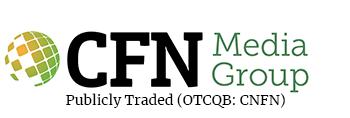Recurrent pericarditis management has evolved significantly in recent years, with treatment approaches expanding from traditional anti-inflammatory medications to targeted biologics. The disease is estimated to affect around 30,000 to 40,000 Americans annually, and a 2021 study found recurrent pericarditis patients spent nearly $3,000/month trying to treat their persistent cases. This translates to around a billion dollars spent each year in the United States alone.
The medical profession is starting to get a handle on recurrent pericarditis, driven by increased disease awareness, better diagnosis due to advances in imaging, and the introduction of novel IL-1 blockers. Still, the treatment for the troublesome disease is far from ideal. Here we’ll look at the current treatment landscape for recurrent pericarditis and analyze the market opportunity for new therapeutic interventions.
Standard Treatment Approaches
The management of recurrent pericarditis typically follows a stepwise approach, beginning with conventional anti-inflammatory medications and progressing to more advanced therapies for refractory (the most persistent and unresponsive) cases.
NSAIDs and Colchicine as First-Line Therapy
Non-steroidal anti-inflammatory drugs (NSAIDs) remain the cornerstone of initial treatment for recurrent pericarditis. Treatment typically consists of an NSAID administered with a 2- to 4-week taper after symptom resolution. Common NSAIDs include ibuprofen, often prescribed at doses such as 600mg three times daily for acute episodes.
Colchicine is recommended as first-line therapy for acute and recurrent pericarditis in conjunction with NSAIDs. For recurrent pericarditis, colchicine treatment should extend for at least six months to effectively reduce the risk of further recurrences. This combination of NSAIDs and colchicine has shown effectiveness in preventing additional episodes in many patients.
Corticosteroids and Their Limitations
Corticosteroids have been associated with a more prolonged disease course and a higher risk of recurrence in pericarditis patients. Accordingly, their use should be reserved for patients unable to take NSAID therapy or for those with specific indications, such as autoimmune disease, pregnancy, or immune checkpoint inhibitor-associated pericarditis.
Many patients with recurrent pericarditis become corticosteroid-dependent, requiring these medications for extended periods. This dependence presents significant challenges, as long-term corticosteroid use is associated with numerous adverse effects, including metabolic issues, immunosuppression, and growth impairment in children.
Advanced Therapies for Refractory Cases
When conventional treatments fail, several advanced therapeutic options may be considered for patients with refractory recurrent pericarditis.
IL-1 Blockers: A Paradigm Shift
In the most recent decade, the introduction of interleukin-1 blockers in pericarditis clinical practice, although immunosuppressive, has improved the treatment of difficult to treat patients who suffer multiple recurrent pericarditis episodes. The rationale for using this class of medications stems from the autoinflammatory nature of recurrent pericarditis, with interleukin-1 being the main pro-inflammatory cytokine involved.
Rilonacept (trade name ARCALYST®)
Rilonacept, an interleukin-1α and interleukin-1β trap, received FDA approval for recurrent pericarditis in 2021. Licensed and marketed by Kiniksa Pharmaceuticals (Nasdaq: KNSA), it remains the only FDA-approved treatment for recurrent pericarditis. The company’s clinical trial demonstrated that rilonacept is effective in treating active flares in recurrent pericarditis and allowed for tapering of concomitant anti-inflammatory medications.
Administered subcutaneously weekly, ARCALYST® is expensive (around $300,000/year) and comes with many potential side effects, including those resulting from suppression of the immune system. It remains Kiniksa’s only approved drug and largely accounts for the company’s ~ $1.5 billion valuation.
Anakinra
Anakinra, an IL-1β recombinant receptor antagonist, has also shown efficacy in treating refractory recurrent pericarditis, although its use for this condition remains off-label. In the AIRTRIP randomized clinical trial, anakinra dramatically reduced recurrence rates to 18% compared to 90% in the placebo group. Additionally, anakinra allowed for corticosteroid withdrawal in all patients studied in the trial.
Anakinra is administered daily via subcutaneous injection, typically at a dose of 100mg for adults. The improvement in outcomes appears to be dependent on the duration of therapy, with longer treatment courses associated with better results.
Immunosuppressive Agents and Surgical Options
For patients who remain refractory to IL-1 blockers, other treatment options include immunosuppressive agents such as azathioprine, methotrexate, mycophenolate mofetil, and intravenous immunoglobulins. These therapies have shown variable efficacy in small numbers of patients but are generally considered before invasive approaches.
Pericardiectomy, the surgical removal of the pericardium, represents a last resort for symptomatic relief in cases of continuously relapsing pericarditis. Results have been variable, with some patients experiencing complete remission while others continue to experience symptoms after surgical intervention. The best outcomes have been reported when complete resection of the pericardium is undertaken.
Emerging Treatments and Clinical Developments
The therapeutic landscape for recurrent pericarditis continues to evolve with several promising treatments in development.
CardiolRx™
Cardiol Therapeutics Inc. (Nasdaq: CRDL) (TSX: CRDL) is advancing CardiolRx™ into a Phase 3 clinical trial, called MAVERIC, to evaluate its impact in recurrent pericarditis patients. Taken orally, patients receiving CardiolRx™ in a Phase 2 trial experienced marked and rapid reductions in both their pericarditis pain and inflammation that were maintained throughout the study. In addition, the results demonstrated a striking reduction in pericarditis episodes per year. Further, the drug was shown be safe and well tolerated, and is expected to cost substantially less than ARCALYST should it be approved. The Phase 3 MAVERIC trial is evaluating CardiolRx™ versus placebo on freedom from a new episode of recurrent pericarditis in patients at high-risk for a recurrence event.
Upon completion of the Phase 3 MAVERIC trial, assuming positive results, Cardiol plans to apply to the FDA for a New Drug Application approval. The company has already been granted Orphan Drug Status by the FDA for its pericarditis program. A successful trial and subsequent approval would certainly be an impactful achievement for Cardiol, currently with no approved drugs and a valuation of approximately $85 million.
KPL-387
Kiniksa Pharmaceuticals is developing KPL-387, a monoclonal antibody that binds human interleukin-1 receptor 1 (IL-1R1), inhibiting the signaling activity of IL-1α and IL-1β. The company plans to initiate a Phase 2/3 clinical trial of KPL-387 in recurrent pericarditis in mid-2025. KPL-387 could potentially enable dosing with a single monthly subcutaneous injection in a liquid formulation, which would represent a significant improvement in convenience for patients requiring IL-1 blocker therapy.
Market Opportunity for New Treatments
The recurrent pericarditis treatment market presents significant opportunities for pharmaceutical companies developing novel therapies. With recurrent pericarditis costing patients nearly $3,000 per month—totaling approximately $1 billion yearly in the U.S.—there is a critical need for innovative treatments to address this substantial economic and health burden.
Despite the advances in treatment, significant unmet needs remain in the management of recurrent pericarditis. First-line treatments such as NSAIDs and colchicine often fail in patients resistant or intolerant to those medications, prompting a shift toward immunosuppressant therapies like IL-1 blockers which are expensive, increase infection risk, and are associated with a number of side effects. In addition, patients become dependent on IL-1 blockers and when discontinued the risk of recurrence is as high as 75%.
There is a growing need for more convenient treatment options. For example, KPL-387 aims to provide a single monthly subcutaneous injection, which would represent an improvement over current IL-1 blocker regimens that require more frequent dosing. Meanwhile, CardiolRx™ is an oral formulation that is easy to administer, and offers the potential to address the challenges and limitations associated with current treatment options which include non-responsiveness, intolerance, immunosuppression, dependency, recurrence risk following discontinuation, and cost.
Conclusion
The management of recurrent pericarditis has evolved considerably in recent years, with treatment options expanding beyond traditional NSAIDs, colchicine, and corticosteroids to include targeted IL-1 blockers for refractory cases. The introduction of rilonacept and off-label use of anakinra have provided options for patients with this challenging condition.
As understanding of the autoinflammatory nature of recurrent pericarditis deepens and new therapeutic targets are identified, the treatment paradigm is expected to evolve. Companies like Cardiol Therapeutics and Kiniksa that are developing innovative solutions that improve efficacy, reduce side effects, and/or enhance treatment convenience will find significant opportunities in this growing market, ultimately benefiting the approximately 40,000 patients in the United States and many more worldwide who suffer from this challenging cardiovascular condition.










